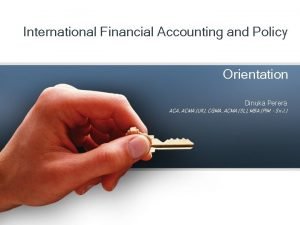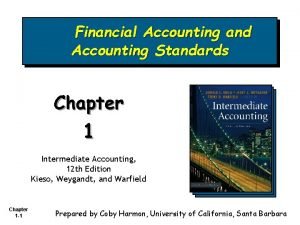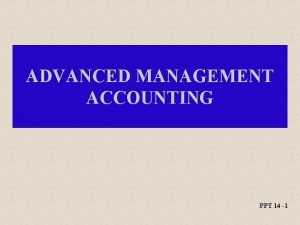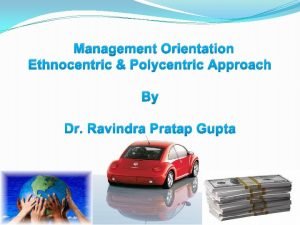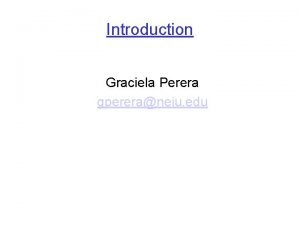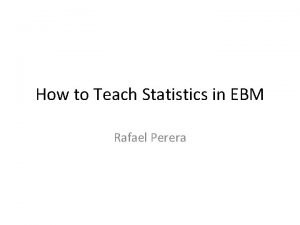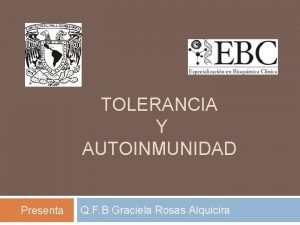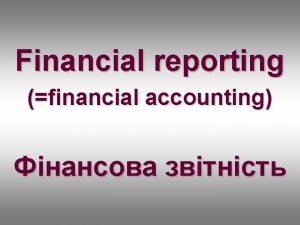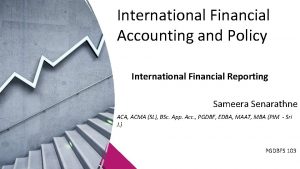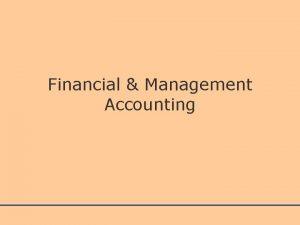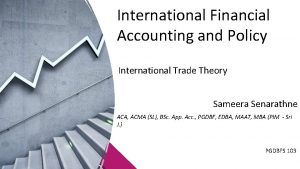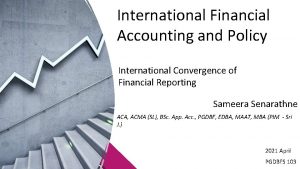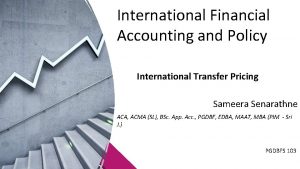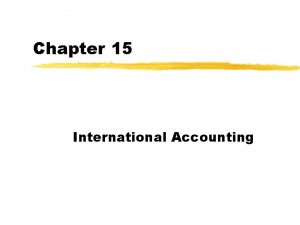International Financial Accounting and Policy Orientation Dinuka Perera










- Slides: 10

International Financial Accounting and Policy Orientation Dinuka Perera ACA, ACMA (UK), CGMA, ACMA (SL), MBA (PIM - Sri J. )

Content • Aim of the Module • Intended Learning Outcomes – – – Knowledge Competencies Skills • Content of the Module • Learning Method • Assessment Method • Reading Materials

Aim of the Module • This module aims to impart – – – Knowledge Competencies & Skills Relating to the development of international accounting and harmonization ideas Emphasis on IFRS, CSR, and corporate governance practices around the world

Intended Learning Outcomes • Knowledge – Understand why there is a worldwide diversity in financial reporting and an attempt at a global convergence of these practices – Articulate how IFRS-like practice becomes diffused and what elements become debatable – Interpret financial statements in relation to foreign currency translation and exchange rate implications – Analyse the impact of international taxation and transfer pricing practices – Debate the merits of the arguments for global convergence of financial reporting

Intended Learning Outcomes • Competencies – Refer to international developments in financial reporting when understanding and analysing financial statements – Relate this knowledge to case scenarios • Skills – Lead any management related discussion based on international developments in financial reporting – Prepare suitable basic management reports reflecting such skills.

Content of the Module • Worldwide accounting diversity and convergence – 10% • IFRS practices and comparative accounting – 30% • Foreign currency translations, exchange rates, and financial statements -20% • International taxation and transfer pricing – 15% • International auditing, corporate governance, and CSR – 20% • Use of scenarios in applying this knowledge – 5%

Learning Method • Formal lectures • Formal contact hours: 45 hours • Notional hours: 120 hours

Assessment Method • 40% - In-course assignment: 2500 – 3000 word essay showing how international accounting knowledge is important for strategic decisions n business • 60% - Final unseen exam: 3 -hour closed book exam

Reading Materials • Timothy Doupnik and Hector Perera (2014) - International Accounting, Mc. Graw-Hill Education. • Selected articles from – – – International Journal of Accounting and Financial Reporting Managerial Auditing Journal Accounting, Auditing and Accountability Journal

Thank you!
